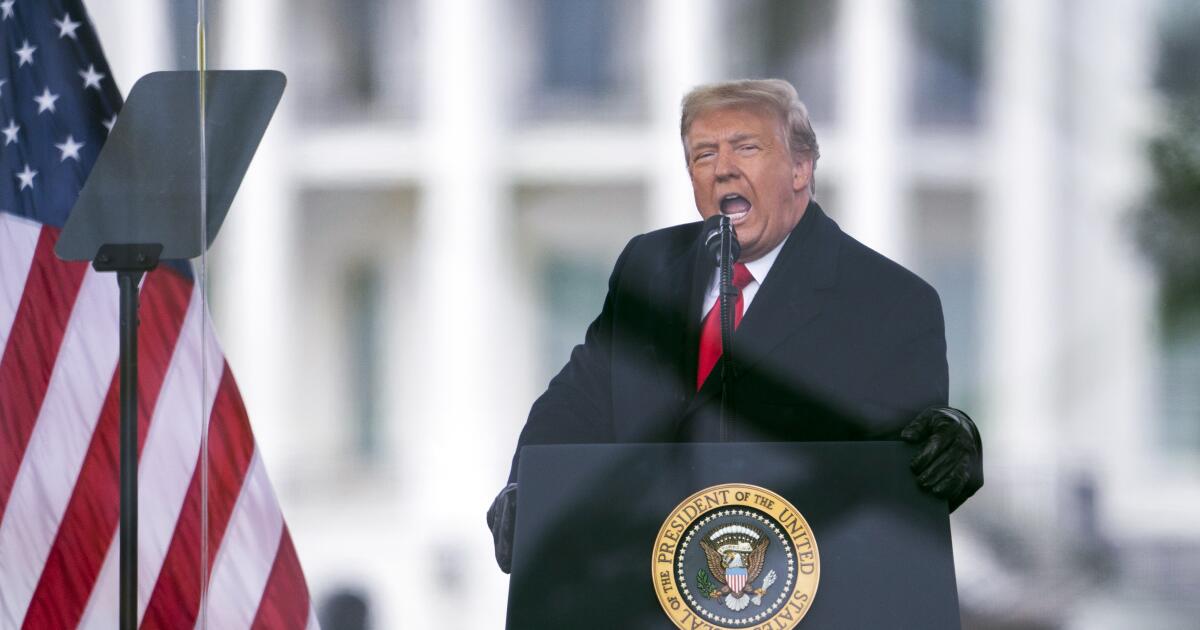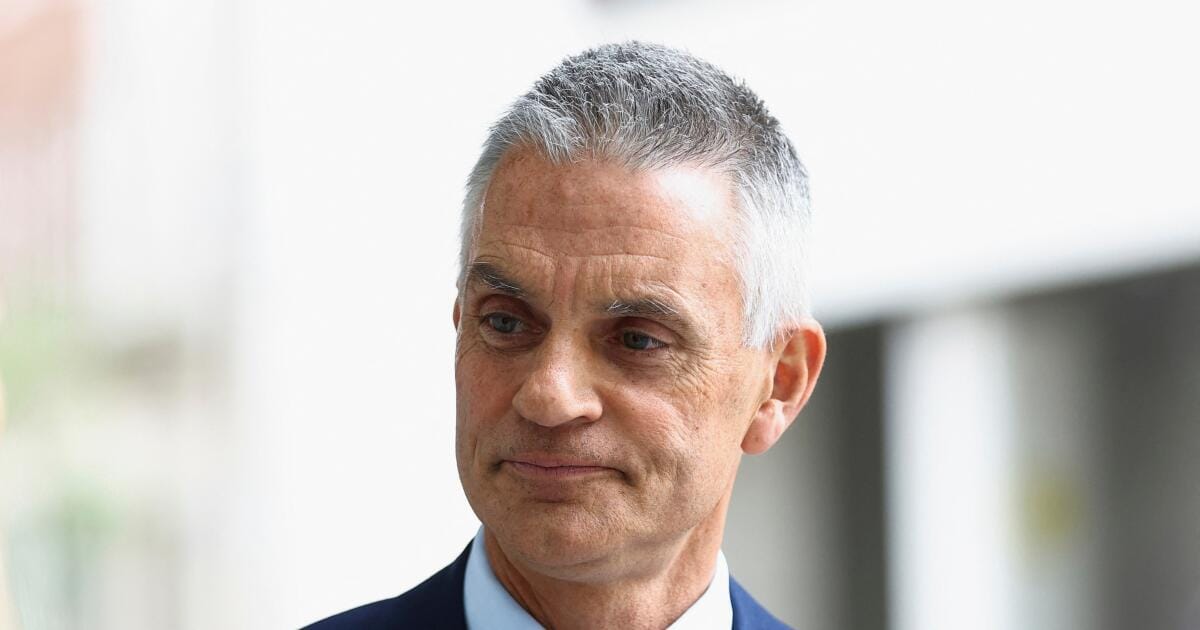BBC News leaders resign after criticism of the broadcaster’s editing of a Trump speech
BBC Director-General Tim Davie and BBC News Chief Executive Deborah Turness announced Sunday they are resigning from their positions.
The departures come as the British public broadcaster has faced criticism for its editing of President Trump’s Jan. 6, 2021, speech before the Capitol riot and insurrection.
The BBC investigative series “Panorama,” in a broadcast a week ahead of the U.S. presidential election last year, featured an edited video of Trump’s speech.
Critics said that the way the speech was edited was misleading in that it cut out a section in which Trump said that he expected his supporters would demonstrate peacefully.
“I know that everyone here will soon be marching over to the Capitol building to peacefully and patriotically make your voices heard,” Trump said in the speech, during which he also urged his supporters to “fight like hell.”
In a statement, Turness acknowledged the controversy around the “Panorama” broadcast, noting, “In public life leaders need to be fully accountable, and that is why I am stepping down. While mistakes have been made, I want to be absolutely clear recent allegations that BBC News is institutionally biased are wrong.”
In a separate news release, Davie said, “In these increasingly polarized times, the BBC is of unique value and speaks to the very best of us. It helps make the UK a special place; overwhelmingly kind, tolerant and curious. Like all public organizations, the BBC is not perfect, and we must always be open, transparent and accountable.
“While not being the only reason, the current debate around BBC News has understandably contributed to my decision. Overall the BBC is delivering well, but there have been some mistakes made and as Director-General I have to take ultimate responsibility.”
Trump was impeached and criminally indicted over his role in the Jan. 6, 2021, riot and insurrection. The felony charges were dropped after he won the 2024 election, as U.S. Justice Department policy holds that a sitting president may not be criminally prosecuted.
Pressure on the broadcaster’s top executives has been growing since the Daily Telegraph newspaper published parts of a dossier complied by Michael Prescott, who had been hired to advise the BBC on standards and guidelines.
As well as the Trump edit, it criticized the BBC’s coverage of transgender issues and raised concerns of anti-Israel bias in the BBC’s Arabic service.
The 103-year-old BBC faces greater scrutiny than other broadcasters — and criticism from its commercial rivals — because of its status as a national institution funded through an annual license fee of $230 paid by all households with a television.
The BBC airs vast reams of entertainment and sports programming across multiple television and radio stations and online platforms — but it’s the BBC’s news output that is most often under scrutiny.
The broadcaster is bound by the terms of its charter to be impartial in its output, and critics are quick to point out when they think it has failed. It’s frequently a political football, with conservatives seeing a leftist slant in its news output and some liberals accusing it of having a conservative bias.
It has also been criticized from all angles over its coverage of the Israel-Hamas war in Gaza. In February, the BBC removed a documentary about Gaza from its streaming service after it emerged that the child narrator was the son of an official in the Hamas-led government.
The BBC shakeup comes as Trump has been extremely aggressive in pursuing lawsuits against U.S. media companies. Paramount Global forked over $16 million this summer after Trump complained about the editing of a Kamala Harris interview on CBS’ “60 minutes.” Last year, ABC News paid $16 million to settle Trump’s defamation lawsuit against anchor George Stephanopoulos.
The Associated Press contributed to this report.

